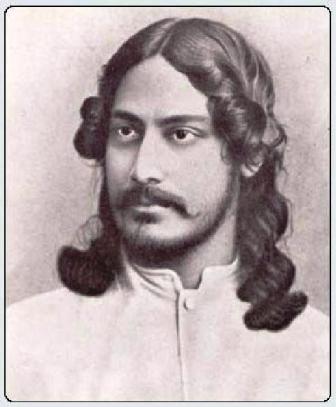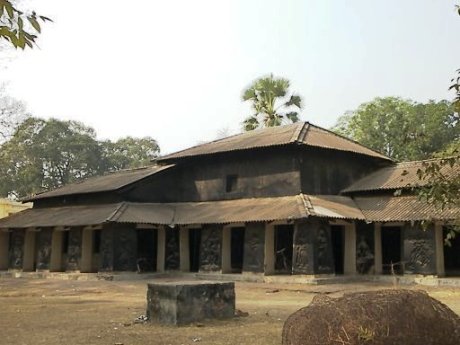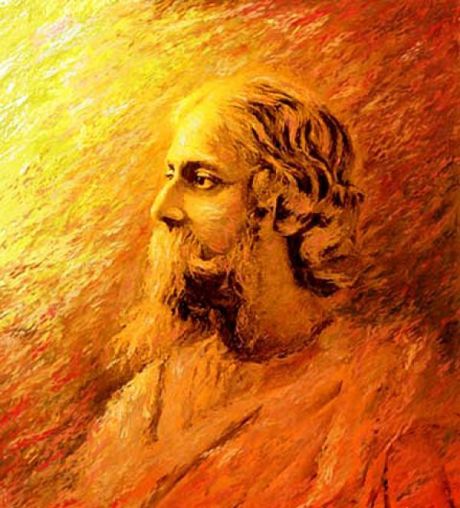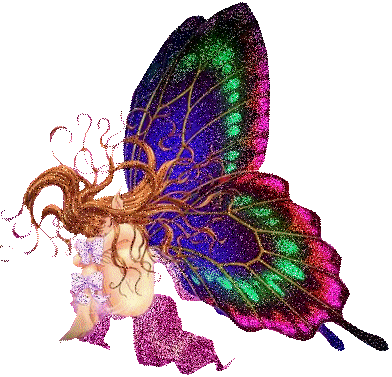800th anniversary of the birth of Maulana Jalal-ud-Din Belhi-Rumi
(Maulana Jalal-ud-Din Balkhi Rumi), poet and philosopher (1207-1273)
“Eminent philosopher and mystical poet of Islam, Rumi advocated tolerance, reason and access to knowledge through love. His mystical relationship with Islam produced masterpieces that have marked Islamic culture and religious beliefs, well beyond the borders of Turkey. His work and thought remain universally relevant today.”
Above text is taken from UNESCO’s official website announcing that 2007 is declared as Rumi Year. 2007 is the 800th anniversary of Rumis birth and until today his thoughts and poems, written in the “Mesnevi” and “Divan-i Kebir” in Persian language, are for many humans, not only for muslim people very important.
Central topic of Maulanas teachings is the love, which he understood as main power of the universe. Because of God´s love the universe exists at all, humans must learn to love God, so they will learn to love everything what is God´s creation, thus as humans, nature and all things.
“For the lovers of God is God alone the source of sorrow and joy. It is the wages of their work and to be really rich.” (From the Mesnevi of Maulana Jalaluddin Rumi)
In the last year 1,5 million visitors and pilgrims flowed to the mausoleum of Maulana Jalaluddin Rumi, which is today one of Turkeys most visited museums. 200000 visitors came from foreign countries, especiallay from Iran, where Maulana is very famous. From every part of the world humans visited the mystical poet, many of them speaking “Dua” (asking prayers) at his tomb.
After Maulanas death on December 17 in the year 1273 the mausoleum was established over which today rises up the “Kubbe-i-Hadra” (the Green dome), it became the symbol of Konya.
Rumi was buried near his father in the rose garden of the Seljuk palace. Later altogether 55 family members and companion or highranking Mevlevi-Derwishs like Selaheddin Zerkub and Husamedin Çelebi found their last peace at the mausoleum, beside Maulana his son Sultan Veled. The “Tekke” was built, a building for meetings and studies, the Sema hall for mystical dance and small cells for meditation practice like “Zikr” (thinking of God).
Maulana Jalaluddin Rumi was born in the year 1207 in Balkh in the Persian region Horasan (today Afghanistan). His father was the respected scholar Bahaeddin Veled, who left the city with his familiy because of the forthcoming Mongol invasion.
After travelling through different areas and a longer stay in Karaman, finally they came 1228 to Konya, which was the capital of the Rum Seljuk under the powerful Sultan Alaaddin Keykubat. After the death of the father Rumi became also a respected theological scholar. But the meeting and special friendship with Shemseddin Tabrisi, a dervish of the calendar order he met 1244 in Konya, brought him on the mystic way.
The Sufi Derwishorder of the Maulevis, which was founded after Maulanas death, got large influence during the time of the Turkish Seljuk and later in the Ottoman empire. The order was closed, when the new Turkish Republic was established at the beginning of the 20. century. Today exists in many countries, even in Europe and America small private groups, which are following the thoughts of Maulana and partly continuing mystic practices.
The ritual of “Sema”, the mystic dance of turning Maulevi dervishs found its origin in an inspiration of Maulana Celaleddin Rumi, but received its form after his death. Accompanied by the sounds of the flute “Ney” and other instruments, the whirling dervish is turning like in trance around his own axis, the right hand upward to be ready to receice God´s beneficence and the left hand downward to the earth. It symbols the mankind with their connection between heaven and earth.
The day of death Maulana Jalaluddin Rumis on December 17 in the year 1273 is named as “Seb-i-Arus”, what means literally translated “wedding night”. For the inhabitants of Konya at that time Mevlanas death was a drastic event. Sheikh Sadreddin Konevi, another mystic master from Konya, who should speak the last prayer for Maulana, fell in faint because of sadness. To Rumis funeral came numerous representatives of all groups and religions, also Christians and Jews. Despite of the muslim funeral they were reading from the old and new testament and described the character of Maulana as equal with Moses and Jesus. Maulana Jalaluddin Rumi had designated the death as typical for the sufis as “wedding”, a kind of still more intensive mental combination with God. In the Divan the following statement is contained: “When you see my funeral don´t say: What for a separation. It is time for me to meet the lover…”
There is every year a festival week in Konya in December with exhibitans, concerts and performance of the whirling dervish dance “Sema” at the Maulana cultural center (Mevlana Kültür Merkezi).
In 2006 more than 70000 visitors from many different countries came to see the performances. Like every year December 17 was a special day, where hundreds of people came together in the afternoon at the tomb of Maulana to speak “Dua”.
In the Maulana year 2007, which was declared by UNESCO after an initiative of the countries Turkey, Egypt and Afghanistan, will be world-wide cultural and informative events about Maulans philosophy.
Maulana Jalaluddin Rumi will be for every time a good example, because of his tolerance, love and good relation to his fellows.




 مولانا جلال الدین محمد بلخی رومی
مولانا جلال الدین محمد بلخی رومی
پیدائش اور نام و نسب
محمد جلال الدین رومی (پیدائش:1207ء، انتقال: 1273ء) مشہور فارسی شاعر تھے۔ اصل نام جلال الدین تھا لیکن مولانا رومی کے نام سے مشہور ہوئے۔ جواہر مضئیہ میں سلسلہ نسب اس طرح بیان کیا ہے : محمد بن محمد بن محمد بن حسین بن احمد بن قاسم بن مسیب بن عبداللہ بن عبدالرحمن بن ابی بکرن الصدیق۔ اس روایت سے حسین بلخی مولانا کے پردادا ہوتے ہیں لیکن سپہ سالار نے انہیں دادا لکھا ہے اور یہی روایت صحیح ہے۔ کیونکہ وہ سلجوقی سلطان کے کہنے پر اناطولیہ چلے گئے تھے جو اس زمانے میں روم کہلاتا تھا۔ ان کے والد بہاؤ الدین بڑے صاحب علم و فضل بزرگ تھے۔ ان کا وطن بلخ تھا اور یہیں مولانا رومی 1207ء بمطابق 604ھ میں پیدا ہوئے۔
ابتدائی تعلیم
ابتدائی تعلیم کے مراحل شیخ بہاؤ الدین نے طے کرادیے اور پھر اپنے مرید سید برہان الدین کو جو اپنے زمانے کے فاضل علماء میں شمار کیے جاتے تھے مولاناکا معلم اور اتالیق بنادیا۔ اکثر علوم مولانا کو انہی سے حاصل ہوئے۔ اپنے والد کی حیات تک ان ہی کی خدمت میں رہے۔ والد کے انتقال کے بعد 639ھ میں شام کا قصد کیا ۔ ابتدا میں حلب کے مدرسہ حلاویہ میں رہ کر مولاناکمال الدین سے شرف تلمذ حاصل کیا۔
علم و فضل
مولانا رومی اپنے دور کے اکابر علماء میں سے تھے۔ فقہ اور مذاہب کے بہت بڑے عالم تھے۔ لیکن آپ کی شہرت بطور ایک صوفی شاعر کے ہوئی۔ دیگرعلوم میں بھی آپ کو پوری دستگاہ حاصل تھی۔ دوران طالب علمی میں ہی پیچیدہ مسائل میں علمائے وقت مولانا کی طرف رجوع کرتے تھے۔ شمس تبریز مولانا کے پیر و مرشد تھے۔ مولانا کی شہرت سن کر سلجوقی سلطان نے انھیں اپنے پاس بلوایا۔ مولانا نے درخواست قبول کی اور قونیہ چلے گئے اور
اولاد
مولانا کے دو فرزند تھے ، علاؤ الدین محمد ، سلطان ولد ۔ علاؤ الدین محمد کا نام صرف اس کارنامے سے زندہ ہے کہ انہوں نے شمس تبریز کو شہید کیا تھا۔ سلطان ولد جو فرزند اکبر تھے ، خلف الرشید تھے ، گو مولانا کی شہرت کے آگے ان کا نام روشن نہ ہوسکا لیکن علوم ظاہری و باطنی میں وہ یگانہ روزگار تھے۔ ان کی تصنیفات میں سے خاص قابل ذکر ایک مثنوی ہے ، جس میں مولانا کے حالات اور واردات لکھے ہیں اور اس لحاظ سے وہ گویا مولانا کی مختصر سوانح عمری ہے۔
سلسلہ باطنی
مولانا کا سلسلہ اب تک قائم ہے۔ ابن بطوطہ نے اپنے سفرنامے میں لکھا ہے کہ ان کے فرقے کے لوگ جلالیہ کہلاتے ہیں۔ چونکہ مولانا کا لقب جلال الدین تھا اس لیے ان کے انتساب کی وجہ سے یہ نام مشہور ہوا ہوگا ۔ لیکن آج کل ایشیائے کوچک ، شام ، مصر اور قسطنطنیہ میں اس فرقے کو لوگ مولویہ کہتے ہیں۔ یہ لوگ نمد کی ٹوپی پہنتے ہیں جس میں جوڑ یا درز نہیں ہوتی ، مشائخ اس ٹوپی پر عمامہ باندھتے ہیں۔ خرقہ یا کرتہ کی بجائے ایک چنٹ دار پاجامہ ہوتاہے۔ ذکر و شغل کا یہ طریقہ ہے کہ حلقہ باندھ کر بیٹھتے ہیں۔ ایک شخص کھڑا ہو کر ایک ہاتھ سینے پر اور ایک ہاتھ پھیلائے ہوئے رقص شروع کرتا ہے۔ رقص میں آگے پیچھے بڑھنا یا ہٹنا نہیں ہوتا بلکہ ایک جگہ جم کر متصل چکر لگاتے ہیں۔ سماع کے وقت دف اور نے بھی بجاتے ہیں۔
وفات
بقیہ زندگی وہیں گذار کر 1273ء بمطابق 672ھ میں انتقال کرگئے۔ قونیہ میں ان کا مزار آج بھی عقیدت مندوں کا مرکز ہے۔
قونیہ میں مولانا کا مزار
مثنوی رومی
ان کی سب سے مشہور تصنیف ’’مثنوی مولانا روم‘‘ ہے۔ اس کے علاوہ ان کی ایک مشہور کتاب ’’فیہ مافیہ‘‘ بھی ہے۔
باقی ایں گفتہ آیدبے زباں
درددل ہر کس کہ دارد نورجان
ترجمہ:”جس شخص کی جان میں نورہوگا اس مثنوی کا بقیہ حصہ اس کے دل میں خودبخود اتر جائیگا”
اقبال اور رومی
علامہ محمد اقبال مولانا رومی کو اپنا روحانی پیر مانتے تھے۔ کشف اور وجدان کے ذریعے ادراک حقیقت کے بعد صوفی صحیح معنوں میں عاشق ہو جاتا ہے کہ بہ رغبت تمام محبوب حقیقی کے تمام احکام کی پیروی کرتا ہے۔ رومی نے جوہر عشق کی تعریف اور اس کی ماہیت کی طرف معنی خیز اشارے کیے ہیں ۔ صوفی کی ذہنی تکمیل کا مقام کیا ہے اس کے متعلق دو شعر نہایت دل نشیں ہیں۔
آدمی دید است باقی پوست است
دید آں باشد کہ دید دوست است
جملہ تن را در گداز اندر بصر
در نظر رو در نظر رو در نظر
علامہ اقبال نے اس کی یوں تشریح کی ہے
خرد کے پاس خبر کے سوا کچھ اور نہیں
ترا علاج نظر کے سوا کچھ اور نہیں
ان کے 800 ویں جشن پیدائش پر ترکی کی درخواست پر اقوام متحدہ کے ادارہ برائے تعلیم، ثقافت و سائنس یونیسکو نے 2007ء کو بین الاقوامی سالِ رومی قرار دیا۔ اس موقع پر یونیسکو تمغہ بھی جاری کرے گا۔
یہ معلومات وکیپیڈیا سے لی گئی ہے








